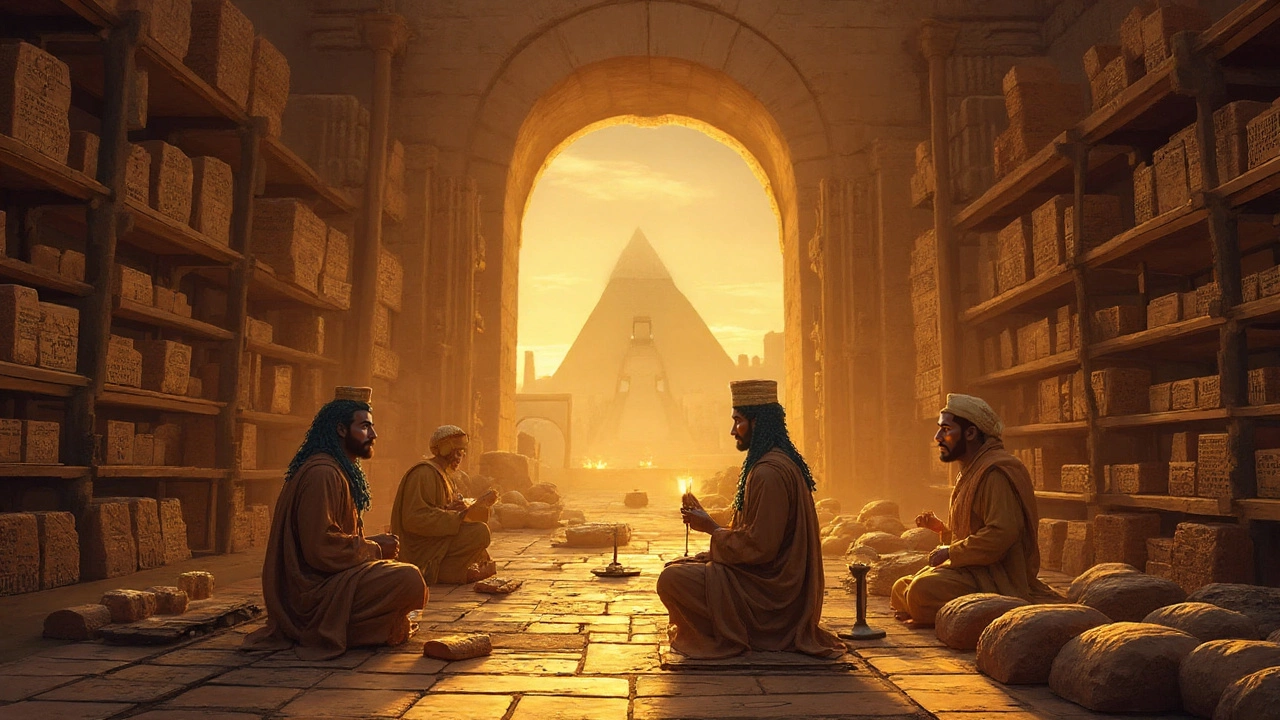
World’s Oldest Poem: Unearthing the Epic of Gilgamesh and Ancient Poetry
Dive into the fascinating story behind the oldest known poem, the Epic of Gilgamesh. Discover how ancient poetry shaped storytelling as we know it.
When you hear "ancient literature" most people think of Greek epics or Shakespeare. Few realize that the world’s first written stories came from Sumer, a civilization that lived in what is now southern Iraq over 5,000 years ago. These texts are not just old; they are the building blocks of myth, religion, and even modern storytelling.
Why should you care? Because the ideas, characters, and structures found in Sumerian tablets show up in movies, books, and games today. Knowing the roots helps you spot patterns and understand why certain stories feel timeless.
The most famous Sumerian work is the Epic of Gilgamesh. It follows a king who seeks fame, battles monsters, and wrestles with the fear of death. Along the way he meets Enkidu, a wild man who becomes his best friend. The epic deals with friendship, the search for meaning, and the acceptance of mortality—topics that still resonate.
Besides the epic, there are countless hymns, prayers, and lamentations. The "Lament for Ur" mourns the fall of a city and reflects on divine punishment. Hymns to the goddess Inanna celebrate love, war, and power. These pieces give us a glimpse into how Sumerians viewed their gods and their everyday lives.
Another interesting group is the "Instructions" or wisdom literature. Texts like the "Instructions of Shuruppak" are early how‑to guides on good behavior, farming, and family life. They read like a mix of moral lessons and practical advice, showing that the desire to pass down knowledge is ancient.
First, the storytelling techniques they used—like a hero’s journey, a flood narrative, and a quest for immortality—appear in modern narratives. The flood story in Gilgamesh mirrors the Bible’s Noah tale, and the quest for eternal life shows up in countless sci‑fi plots.
Second, the language itself matters. Sumerian was written in cuneiform, one of the first writing systems. By studying how they recorded words, scholars learned how writing spreads, which influences how we think about literacy today.
Third, these texts remind us that human concerns don’t change much. Love, loss, ambition, and the search for meaning are as real now as they were thousands of years ago. When you read a Sumerian hymn, you’re hearing a voice that feels oddly familiar.
Finally, exploring Sumerian literature can be fun. Many translations are available online, and museums show high‑resolution images of the original clay tablets. You don’t need a degree in archaeology to start—just curiosity.
So next time you watch a movie about a hero’s quest or read a modern poem about loss, think about the Sumerian roots underneath. Those ancient tablets still have a lot to teach us, and they prove that great stories never get old.

Dive into the fascinating story behind the oldest known poem, the Epic of Gilgamesh. Discover how ancient poetry shaped storytelling as we know it.